Carlos Reygadas, the Mexican surrealistic filmmaker known for confounding audiences with somnolent landscapes and stark visions of humanity melding among the wily breeze, the flow of a silent river, and the meander of children wandering through tall grass. He has created a subtle masterpiece with his 2007 film Silent Light.


On Heaven as it is in Earth
An Excerpt By José Teodoro, Published in Film Comment
In the opening shot of Silent Light, we begin as if lost in the cosmos and end with our feet on the quotidian ground. Gradually transfigured by the rising sun, the world fills with life, materializing first as crude form, then delicate silhouette, then vast landscape rich with color and texture. Throughout the film, the emphasis is on firmly acknowledging the miraculous within the most ordinary of events, directing our attention not toward the virtuosity of the filmmaker but the splendor to which he bears witness. Yet there’s a sense, conveyed through the initial reeling movement and the subsequent creeping zoom, that the camera is selecting this particular bucolic scene from a vast galaxy of potential subjects. From infinite possibilities filmmaker Carlos Reygadas is making a choice—and the burden of one’s duty to make choices will become central to the film’s drama.
Silent Light has some sublime, meditative moments: moments of pure, unapologetic visual ecstasy that come close to repealing the cinematic laws of gravity. — The Guardian
Set entirely within the milieu of a Plautdietsch-speaking Mennonite community in Chihuahua, the narrative core of Silent Light is simplicity itself: a love triangle. Farmer Johan (Cornelio Wall) is married to Esther (Manitoba novelist Miriam Toews). Yet Johan loves another Mennonite woman, Marianne (Maria Pankratz), and the two of them are in the midst of an affair. With whom should Johan be? The mother of his children and the woman he’s already made a life with, or the woman to whom he feels perhaps spiritually drawn and with whom he shares a love of unprecedented intensity? Should he try to shape his destiny so as to honor the wonder of this overwhelming passion, or, as he proposes to a friend, does “a brave man make destiny with what he’s got?”
STORY: ‘Solaris’ – Tarkovsky’s Vision Beyond an Urban Future

Watch this video on YouTube
Silent Light, Written and Directed by Carlos Reygadas, 2007
In keeping with a religious system founded in pacifism, the emotional and moral negotiations are devoid of histrionics. By stripping away all of the usual social conventions inherent to adultery dramas, and by maintaining rigorous indifference toward the finer points of the community’s religious dictates, Reygadas poses these basic questions about love, respect, and responsibility in a manner that’s refreshingly uncluttered and emotionally direct.
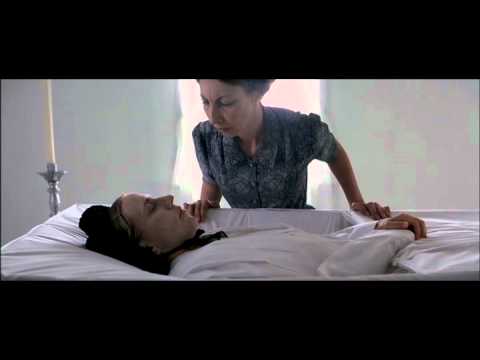
Watch this video on YouTube
Scene from Silent Light
By contrast, Battle in Heaven (2005) is a labyrinth of metaphors and confrontational imagery punctuated with incongruous sexual matches and cryptic rehearsals of Mexican social, political, and religious rituals. But for his third feature, the director has opted for the path of least intrusion, with his camera hanging back and the mise en scène respectfully bearing witness to the proceedings. Where Battle in Heaven’s camera turns away from a sexual act to perform a leisurely 360-degree pan of the tranquil neighborhood beyond the lovers’ window, pointedly redirecting our gaze from the sensational to the mundane, Silent Light rarely introduces any perspective that doesn’t arise organically from the characters and the natural world surrounding them. Reygadas has coaxed extraordinarily committed, heart-searing performances from a cast of nonprofessionals and gives them the space to let moments of tenderness bloom, conflicts fester, tears well up. The closest he comes to forcing anything is occasionally allowing his camera to push in for a closer look, or conjuring a heavenly burst of dazzling lens flares in certain scenes of endearment.
The sun floods the wide sky in “Silent Light” like a beacon, spilling over the austere land and illuminating its pale, pale people as if from within. A fictional story about everyday rapture in an isolated Mennonite community in northern Mexico — and performed by a cast of mostly Mennonite nonprofessionals — the film was written, directed and somehow willed into unlikely existence by the extravagantly talented Carlos Reygadas, whose immersion in this exotic world feels so deep and true that it seems like an act of faith. — New York Times
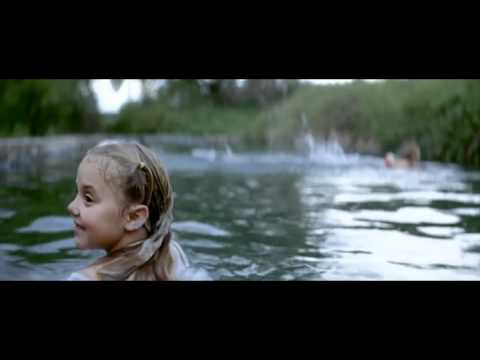
Watch this video on YouTube
In one of the film’s most graceful, sensually alert sequences, Johan and Esther’s children frolic in a swimming hole. The wandering handheld camera gradually makes its way from the kids splashing in the water to the parents affectionately washing one of their daughters. Johan compliments Esther on her soaping technique in what is unmistakably the past tense, an inadvertently cruel intimation of their marriage’s looming expiration. The hurt is all but palpable and Reygadas stays with Esther’s devastated reaction until she finally steps out of frame, leaving the camera to linger on a vibrant Monet thicket of tall grass and flowers in mellifluous rack focus—another gesture indicative of Silent Light’s formal elegance and restraint.
STORY: Ingmar Bergman: A Tenuous Searching Faith in “The Seventh Seal”
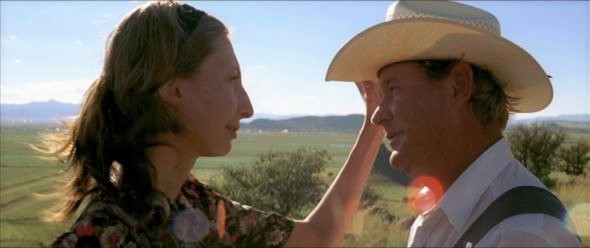
Before we get carried away praising Reygadas’s renunciation of shock value and ostentatious formal noodling in favor of a newfound artistic “maturity,” it’s worth noting that his new film is not slavishly tethered to a mandate of innocent observation and serene naturalism. In fact, everything in Silent Light is carefully calibrated so as to earn a bravura finale in which the sense of the miraculous implicit in the opening sunrise is made manifest.
For the entire article, CLICK HERE.
Written (in Plautdietsch, or Mennonite Low German, with English subtitles) and directed by Carlos Reygadas; director of photography, Alexis Zabe; edited by Natalia López; art director, Nohemi Gonzalez; produced by Mr. Reygadas and Jaime Romandia.
Updated 24 February 2021



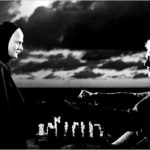




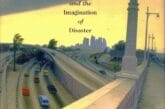




Pingback: H. G. Wells on the Futurist Dystopia of Fritz Lang’s “Metropolis”
Pingback: Shadows: Beat Generation Dreams of John Cassavetes - WilderUtopia